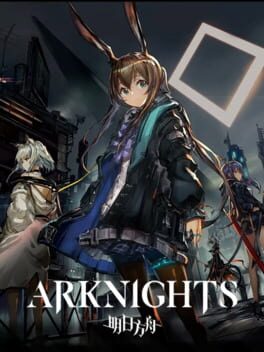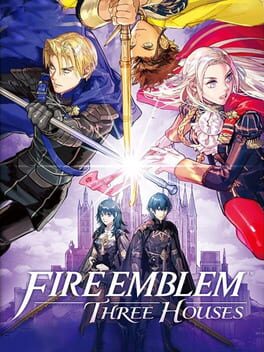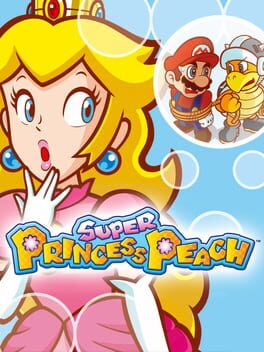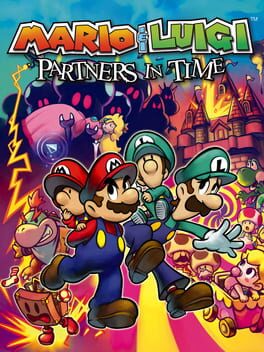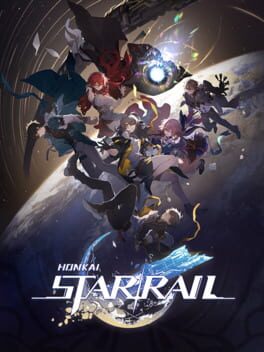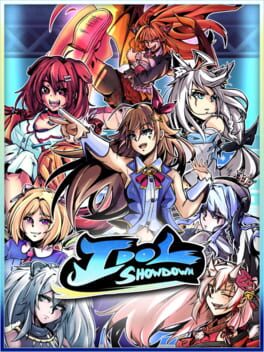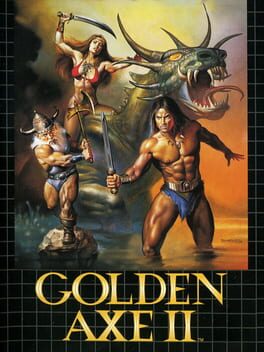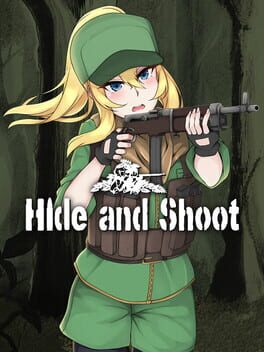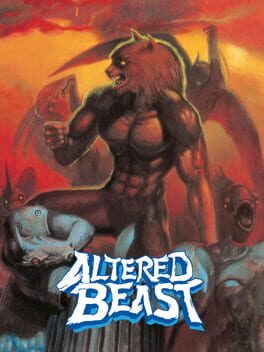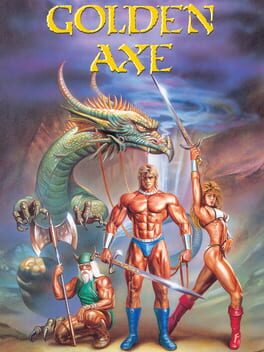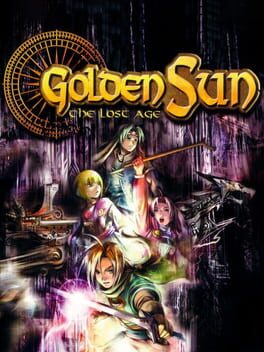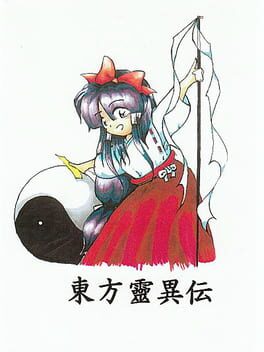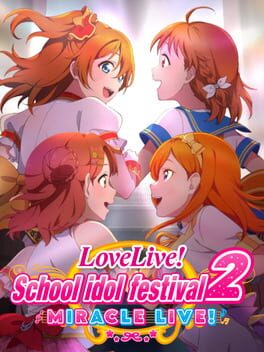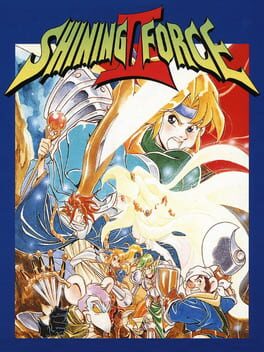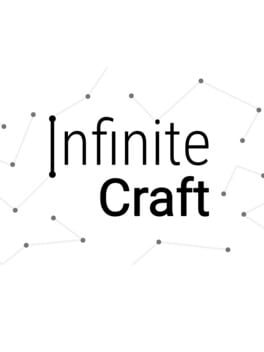petro_sino
2019
Playing Arknights in 2019 and now means having two completely different experiences. By now, threads and talkpoints are kind of taking their time being developed, in a never ending, as the cool kids say, yapping. They, them characters, do yap, in this game. If you're not willing to read, the game's main motif of interest is not for you.
Who knows what the future will hold, with gacha games being a commodity not in short supply and ending as soon as the interest wanes, but thematically we're kind of passing the baton to the new generation, thanks to events like The Rides to Lake Silberneherze but especially thanks to Lone Trail. Terra is a hellish place, but the writing does the place justice by offering different perspectives of what life means, what hope is, what different societies do with a never ending source of pain, Oripathy, which we, as a pharmaceutical company and defense contractor, do kind of offer solace from. 2024 might be an awkward moment to start playing this game, but its different events and a multitude of stories, characters and themes all intersecting and weaving their way towards the future have left a mark. Sometimes the writing's goofy, but when it hits, it hits, hard.
I have a hole School Idol Festival left; unwilling to let go, I was looking for other things to keep me busy, occupied, up at night when the sweet release of sleep from consciousness would not come, especially during hard times like the pandemic. Arknights is not a rhythm game, it's a tower defense game, awkward to play, not always clear in its intent and definitely not balanced. There are operators who are better than others and the odds are mostly stacked against newcomers.
I just hope this hole won't be left vacant, again. I wish I could be younger again and never instruct my neurons to hold information such as Texas mommy and Bagpipe lemmy, but here we are. It's my brainrot and I do, as I please, anything I want with it.
Also it's kinda fucked how Gummy, balanced and good in everything Defender operator, was replaced by Myrtle, a DP printing machine, in the beginners' case, this is a scenario where if anything is too broken, the designers have the moral obligation to break anything else to balance it out and cater content to a demographic, in this case redirecting the newcomers towards a certain frowned upon gameplay loop. Please just don't bother with the meta, there's a world of hurt there and the grind necessary to even glance the thing isn't worth it in my opinion.
Who knows what the future will hold, with gacha games being a commodity not in short supply and ending as soon as the interest wanes, but thematically we're kind of passing the baton to the new generation, thanks to events like The Rides to Lake Silberneherze but especially thanks to Lone Trail. Terra is a hellish place, but the writing does the place justice by offering different perspectives of what life means, what hope is, what different societies do with a never ending source of pain, Oripathy, which we, as a pharmaceutical company and defense contractor, do kind of offer solace from. 2024 might be an awkward moment to start playing this game, but its different events and a multitude of stories, characters and themes all intersecting and weaving their way towards the future have left a mark. Sometimes the writing's goofy, but when it hits, it hits, hard.
I have a hole School Idol Festival left; unwilling to let go, I was looking for other things to keep me busy, occupied, up at night when the sweet release of sleep from consciousness would not come, especially during hard times like the pandemic. Arknights is not a rhythm game, it's a tower defense game, awkward to play, not always clear in its intent and definitely not balanced. There are operators who are better than others and the odds are mostly stacked against newcomers.
I just hope this hole won't be left vacant, again. I wish I could be younger again and never instruct my neurons to hold information such as Texas mommy and Bagpipe lemmy, but here we are. It's my brainrot and I do, as I please, anything I want with it.
Also it's kinda fucked how Gummy, balanced and good in everything Defender operator, was replaced by Myrtle, a DP printing machine, in the beginners' case, this is a scenario where if anything is too broken, the designers have the moral obligation to break anything else to balance it out and cater content to a demographic, in this case redirecting the newcomers towards a certain frowned upon gameplay loop. Please just don't bother with the meta, there's a world of hurt there and the grind necessary to even glance the thing isn't worth it in my opinion.
I'll be brief.
Aren't hobbies supposed to pass time, instead of filling it? What it means to finish a game? Specifically, I almost never finish at 100% of progress games for lack of practicality, but if you consider the games I play, like Tactics Ogre, and their inane prerequisites for a 100% clear, you can see where I come from. One thing is achievement hunting, one thing is saying "yep, there's nothing else left in this for me". Hope I make sense.
Why then does Fire Emblem: Three Houses, or as the fans call it, 100% Walkthrough, ALL ROUTES, keep locking content behind routes? I understand the need to have a complex and definitive experience, with no clear canon, but the clumsiness and game design show another picture. There's three routes in the game, of which ... only one could be considered necessary. Repetitiveness of gameplay loop between monastery trips, fun for the first five minutes, and recycled battle maps can do only so much good for enjoyment.
I felt like I had to play this game just to be done with it and it's not a good indicator of enjoyment and fun. I stepped back, took a break from games altogether, came back last week and cleared all routes. It's frustrating, yes, because there's merit in it. There's a sparkle of good characterization, clear understanding of what makes a good Fire Emblem, but then it's snapped back to reality thanks to awkward choices.
Here's a couple examples:
- I feel like this game is bloated with content, while keeping to a single route and developing that single oneBlue Lions would've done wonders, it would've addressed so many odd moments in the other routes as well. No spoilers, but if you know, you know.
- There was no need to choose the route to pick so early in the game. I hope you enjoy playing the same 10-12 chapters each new game!! when there's also BUILT IN a way to borrow units around your level. Huhhhh let me PLEASE have all units have that standard build and let me skip half the game please.
- Map design is barren. There are probably two or three good maps, and while other games in the franchise like Awakening like to at least present you a set piece, Three Houses really likes to put you through unimpressive ground and grass textures all the time.
These kind of flaws really shine through once you realize, in order to experience the full brunt of the game, you have to play through all threefour routes. It leads to confusion, it leads to frustration; for goodness' sake choosing the Golden Deer faction because you like their characters (fair enough) is paramount to NOT understanding important plot points because it takes for granted that you've played the other two routes, and now you're ready for a third point of view.
I understand where the love for the game comes from. The soundtrack is stellar, the game's very accessible and the battles and classes are very hands-off, reward experimentation and being able to influence units' growth is also very fun. The characters and themes of the game give a lot of think about and offer interesting counterpoints to each other in their support conversations and there's no clear best or worst unit in terms of balance, characterization(except a very dull middle aged man) and build. Still, no reason to put permadeath when all characters are supposed to be important, but you do you, "Intelligent" System, this kind of game design doesn't incentivize iron man runs, at all.
I don't want to be bitter, I think I liked this game. I'll talk about the DLC in another review, at least I'll be able to skip all the monastery chicanery and jump straight to the maps, which made me not want to play the game ever again after 200 hours.
Aren't hobbies supposed to pass time, instead of filling it? What it means to finish a game? Specifically, I almost never finish at 100% of progress games for lack of practicality, but if you consider the games I play, like Tactics Ogre, and their inane prerequisites for a 100% clear, you can see where I come from. One thing is achievement hunting, one thing is saying "yep, there's nothing else left in this for me". Hope I make sense.
Why then does Fire Emblem: Three Houses, or as the fans call it, 100% Walkthrough, ALL ROUTES, keep locking content behind routes? I understand the need to have a complex and definitive experience, with no clear canon, but the clumsiness and game design show another picture. There's three routes in the game, of which ... only one could be considered necessary. Repetitiveness of gameplay loop between monastery trips, fun for the first five minutes, and recycled battle maps can do only so much good for enjoyment.
I felt like I had to play this game just to be done with it and it's not a good indicator of enjoyment and fun. I stepped back, took a break from games altogether, came back last week and cleared all routes. It's frustrating, yes, because there's merit in it. There's a sparkle of good characterization, clear understanding of what makes a good Fire Emblem, but then it's snapped back to reality thanks to awkward choices.
Here's a couple examples:
- I feel like this game is bloated with content, while keeping to a single route and developing that single one
- There was no need to choose the route to pick so early in the game. I hope you enjoy playing the same 10-12 chapters each new game!! when there's also BUILT IN a way to borrow units around your level. Huhhhh let me PLEASE have all units have that standard build and let me skip half the game please.
- Map design is barren. There are probably two or three good maps, and while other games in the franchise like Awakening like to at least present you a set piece, Three Houses really likes to put you through unimpressive ground and grass textures all the time.
These kind of flaws really shine through once you realize, in order to experience the full brunt of the game, you have to play through all three
I understand where the love for the game comes from. The soundtrack is stellar, the game's very accessible and the battles and classes are very hands-off, reward experimentation and being able to influence units' growth is also very fun. The characters and themes of the game give a lot of think about and offer interesting counterpoints to each other in their support conversations and there's no clear best or worst unit in terms of balance, characterization
I don't want to be bitter, I think I liked this game. I'll talk about the DLC in another review, at least I'll be able to skip all the monastery chicanery and jump straight to the maps, which made me not want to play the game ever again after 200 hours.
2005
Playing the better Peach game made me realize how unlikely it was for us to get Super Princess Peach in the first place.
First things first: the game isn't plagued by gimmicky DS controls like half the early DS games, but it simply lets you control the princess' emotions, which play an important role in platforming: by getting angry, Peach can stomp; by crying, you can water plants and so on.
What's so special about this game though? Honestly, not much! The protagonist is cute and the idea is novel, but outside some outstanding levels (like the mansions), I don't really remember much about the game and the levels themselves. I'm sure it works and it controls well enough, controlling emotions is a cool idea and all but it simply cannot carry the game alone. It's an innocuous little game, with wonderful spriting might I add, about a role switch between savior and saved, but that's it.
I wish I had platform sections during my mood swings, but I digress.
First things first: the game isn't plagued by gimmicky DS controls like half the early DS games, but it simply lets you control the princess' emotions, which play an important role in platforming: by getting angry, Peach can stomp; by crying, you can water plants and so on.
What's so special about this game though? Honestly, not much! The protagonist is cute and the idea is novel, but outside some outstanding levels (like the mansions), I don't really remember much about the game and the levels themselves. I'm sure it works and it controls well enough, controlling emotions is a cool idea and all but it simply cannot carry the game alone. It's an innocuous little game, with wonderful spriting might I add, about a role switch between savior and saved, but that's it.
I wish I had platform sections during my mood swings, but I digress.
Time travel is not alien to the world of videogames, let alone RPGs. Partners in Time though treats timeline shenanigans in a clever, weirdly somber and mature approach, considering the depressing and oppressive turn the game's story takes: it is now the Shrooms whom act as cruel and memorable villains in this story, having conquered the Toad Kingdom past.
Mario, Luigi, Mario Jr. & Luigi Jr. work well enough together as a team, but it's not as effective as in Super Star Saga: instead of using points to use combo attacks, they are now essentially items you can buy. Since money was never an issue in M&L games, you can see where the issue lies: the game's difficulty takes a nosedive each time a new combo item is introduced, making enemies' health bars just a matter of time, instead of strategic thinking. Platform sections and puzzles are fun enough, but despite having more bros, there's much less to do in terms of combo and exploration. I'll be blunt, the game takes a lot of steps forward in settings, story, characterization, with the four protagonists weirdly well characterized despite never speaking and Prof. E. Gadd stealing every scene he's featured in. The soundtracks also kind of rocks?
At the same time, it takes away a lot of ingenuity and platforming\puzzles from Super Star Saga, not taking real advantage of the dual screen if not for the occasional battle animation. It tries striking a balance between funny and emotional, which doesn't always land. To me it'll always be charming, but there's a lot of things to consider and wade through before getting to the "good stuff". Strong beginning, weak middle, padded ending but satisfactory experience don't make for a game I'd recommend easily.
In terms the average game journalist can understand, it's a A24-produced, genre-redefining, trope-subverting, 40 KB JPG atmospheric, dark and eerie, emotionally draining [...] game.
Mario, Luigi, Mario Jr. & Luigi Jr. work well enough together as a team, but it's not as effective as in Super Star Saga: instead of using points to use combo attacks, they are now essentially items you can buy. Since money was never an issue in M&L games, you can see where the issue lies: the game's difficulty takes a nosedive each time a new combo item is introduced, making enemies' health bars just a matter of time, instead of strategic thinking. Platform sections and puzzles are fun enough, but despite having more bros, there's much less to do in terms of combo and exploration. I'll be blunt, the game takes a lot of steps forward in settings, story, characterization, with the four protagonists weirdly well characterized despite never speaking and Prof. E. Gadd stealing every scene he's featured in. The soundtracks also kind of rocks?
At the same time, it takes away a lot of ingenuity and platforming\puzzles from Super Star Saga, not taking real advantage of the dual screen if not for the occasional battle animation. It tries striking a balance between funny and emotional, which doesn't always land. To me it'll always be charming, but there's a lot of things to consider and wade through before getting to the "good stuff". Strong beginning, weak middle, padded ending but satisfactory experience don't make for a game I'd recommend easily.
In terms the average game journalist can understand, it's a A24-produced, genre-redefining, trope-subverting, 40 KB JPG atmospheric, dark and eerie, emotionally draining [...] game.
2023
All you had to do to make turn based look "fun" and "something I would play" was to attach it to a gacha. In Star Rail's defense, the game looks good, animations are wonderfully made and it plays well enough to justify any kind of investment: characters have a lot of charm and it's not as dull as other similar experiences in the same macro-genre of games.
If I had to say something contrarian: I would love to have an actual space exploration and\or better navigation. Instead of putting animations at double speed I wish I could skip them entirely.
Yet I am still salty that when I played turn based games in 2008 I was a boomer and had weird tastes, now it's hip and cool! The audacity. I also stopped playing because "wow this game is awesome!" ads kept filling my youtube essay playlist and I've had enough. Genshin ads aren't as insufferable and make me want to play their game, Honkai Star Rail made me want to unistall it.
If I had to say something contrarian: I would love to have an actual space exploration and\or better navigation. Instead of putting animations at double speed I wish I could skip them entirely.
Yet I am still salty that when I played turn based games in 2008 I was a boomer and had weird tastes, now it's hip and cool! The audacity. I also stopped playing because "wow this game is awesome!" ads kept filling my youtube essay playlist and I've had enough. Genshin ads aren't as insufferable and make me want to play their game, Honkai Star Rail made me want to unistall it.
2023
This game is a true love letter by dedicated fans and, despite not feeling the cleanest compared to others, there's been an extraordinary amount of testing and effort put into it.
Which brings me to why I adore this kind of kusoge: despite not being the fondest of Vtubers, Idol Showdown caught me off guard by offering a great cast of characters, reminiscent of Under Night in Blood or Skullgirls in terms of specific roles and niches each character has covered; it made me appreciate each vibrant personality more and especially it made me do some research to see where the appeal was. I think the dog is funny and without Idol Showdown I don't think I would've watched her clips.
Funny how it took years for commercial fighting games to adopt rollback, and even then there's never guarantees, while Idol Showdown had it day one and it's still going on with updates and plans for new characters and assists, truly the power of love and all.
Which brings me to why I adore this kind of kusoge: despite not being the fondest of Vtubers, Idol Showdown caught me off guard by offering a great cast of characters, reminiscent of Under Night in Blood or Skullgirls in terms of specific roles and niches each character has covered; it made me appreciate each vibrant personality more and especially it made me do some research to see where the appeal was. I think the dog is funny and without Idol Showdown I don't think I would've watched her clips.
Funny how it took years for commercial fighting games to adopt rollback, and even then there's never guarantees, while Idol Showdown had it day one and it's still going on with updates and plans for new characters and assists, truly the power of love and all.
1991
No offense to His Highness Dark Gul, but Death Adder at least cared a bit about hiring quotas. All I see here is the same guys over and over again holding key positions (nepotism?). Sure, he may not have looked into benefits, but at least he tried to diversify; I also heard he gave away concert tickets whenever he could, so that's probably more an issue of management than leadership.
Despite finding somewhat entertaining thinking about Golden Axe II in terms of corporatism, you may have figured that's all I got. Same game as the first, your character doesn't die as easily, hits register a bit better and enemies die faster, but they still try to corner you and\or rush you, stages aren't so memorable but the game looks better in general. Good thing you can still throw enemies into pits, which are still there by the way, guess all they care about at GoldenExec is throwing pizza parties, not setting up safety nets.
Look, maybe I'm not as receptive to the idea of a sword-and-sandal beat 'em up experience anymore. I got it, it's still cool, I wish it was elaborated a bit further upon.
Despite finding somewhat entertaining thinking about Golden Axe II in terms of corporatism, you may have figured that's all I got. Same game as the first, your character doesn't die as easily, hits register a bit better and enemies die faster, but they still try to corner you and\or rush you, stages aren't so memorable but the game looks better in general. Good thing you can still throw enemies into pits, which are still there by the way, guess all they care about at GoldenExec is throwing pizza parties, not setting up safety nets.
Look, maybe I'm not as receptive to the idea of a sword-and-sandal beat 'em up experience anymore. I got it, it's still cool, I wish it was elaborated a bit further upon.
2020
1988
Considering the bad reputation Altered Beast has, I don't mean to defend it from the hate it's got. Why make a personality out of dissing old games? This is a 1988 title, a port of an arcade game, I don't want to gatekeep you saying "you had to be there" to understand, but the full potential of playing basically an arcade game on your home console wasn't lost on anybody at the time. I wasn't there specifically, but I remember playing Tekken 3 on the PS1 as a kid and feeling the same sense of wonder about the future of videogames. Generation after generation we all have had the same expectations about the future.
Altered Beast is by no means a masterpiece but it's funny. It's hard and controls aren't intuitive (did you know you can kick up by crouching and kicking?), but bit by bit I reached the end of the game and saved the day. If you don't consider every restart, since every time you lose all lives you go back to the beginning, the game doesn't last long, but it gave me something: everytime the player would power up twice and he'd become this big mountain of a man, when hit he'd be laying down on the grass in a funny pose (see the sprite in the bottom). Like the Peter Griffin pose, that caught me off guard. If someone asked me if it's something worth to take out of a game, I'd say it is, I had a good amount of fun and once the gameplay loop hits, it becomes addicting in a way.
What bummed me were the bosses: the game's difficulty comes from enemy placement during the side scrolling sections, but then the bosses have each a pattern easy to avoid and to exploit. Add the single continue, after which it's game over, you can see why this game is reviled. Me? I find that falling animation funny and the transformations were goofy enough to keep me invested, but if it's worth something I cheered at the golden werewolf, "Just like Super Sonic!" I thought.
Conclusion: I would say Golden Axe is better, but why wouldn't it be? I can see where Team Shinobi and the porting team learned their lessons right here. I think it's worth checking out because it's funny and there shouldn't be any bias when playing games, since there are standards and I understand, but we should all be able to enjoy things nonetheless. I mean come on it's 15 minutes long at least give it a try!
Altered Beast is by no means a masterpiece but it's funny. It's hard and controls aren't intuitive (did you know you can kick up by crouching and kicking?), but bit by bit I reached the end of the game and saved the day. If you don't consider every restart, since every time you lose all lives you go back to the beginning, the game doesn't last long, but it gave me something: everytime the player would power up twice and he'd become this big mountain of a man, when hit he'd be laying down on the grass in a funny pose (see the sprite in the bottom). Like the Peter Griffin pose, that caught me off guard. If someone asked me if it's something worth to take out of a game, I'd say it is, I had a good amount of fun and once the gameplay loop hits, it becomes addicting in a way.
What bummed me were the bosses: the game's difficulty comes from enemy placement during the side scrolling sections, but then the bosses have each a pattern easy to avoid and to exploit. Add the single continue, after which it's game over, you can see why this game is reviled. Me? I find that falling animation funny and the transformations were goofy enough to keep me invested, but if it's worth something I cheered at the golden werewolf, "Just like Super Sonic!" I thought.
Conclusion: I would say Golden Axe is better, but why wouldn't it be? I can see where Team Shinobi and the porting team learned their lessons right here. I think it's worth checking out because it's funny and there shouldn't be any bias when playing games, since there are standards and I understand, but we should all be able to enjoy things nonetheless. I mean come on it's 15 minutes long at least give it a try!
1989
Childhood is choosing the Amazon and beating the first level with two continues. Adulthood is picking the Dwarf and throwing minions into bottomless pits (without supervisors). A railguard wouldn't have hurt here and there, but I can excuse Golden Axe and its sandal-and-sword Conanesque environment for not following OSHA guidelines. Apparently you can't call yourself Death Adder if you let your minions have dental and sick days.
Golden Axe is short but rich in content and mechanics: picking a different hero fundamentally changes the way you play the game, with the tougher and more resilient axe wielding previously mentioned Dwarf, the more magically inclined (derogatory) Amazon and the Barbarian stuck, like Malcom, in the middle.
Kind of the devs putting a beginner course through this version! Too bad it's a completely different matter once you approach the 8 stages long arcade with a plethora of enemies, hazardous environment (as said before, not fun falling in a pit) and those small imps jumping around. It's an hard game, by design, meant to drain you of your coins: every time you'll be cornered by enemies you'll see half or more of your health drained and there's nothing you can do, enemies don't stand in line ready to be smacked but if you're not careful you'll be the one being thrown around. It can be frustrating, especially at the start, because the hit-stun you receive is egregious, but once you memorize patterns and strategically nuke the screens with magic, you'll see through the end of it. A tip: don't bother with the skeletons at the very end, they have more health than the boss itself. This game is not fair.
But, is it worth it? I think it is, especially considering what comes after takes a lot of inspiration from Golden Axe and Double Dragon, but if you want to play, say, Dungeons & Dragons: Chronicles of Mystara, I'd skip to that. It simply hasn't aged as gracefully as others, but if you're here for an history lesson there's no harm in it.
Golden Axe is short but rich in content and mechanics: picking a different hero fundamentally changes the way you play the game, with the tougher and more resilient axe wielding previously mentioned Dwarf, the more magically inclined (derogatory) Amazon and the Barbarian stuck, like Malcom, in the middle.
Kind of the devs putting a beginner course through this version! Too bad it's a completely different matter once you approach the 8 stages long arcade with a plethora of enemies, hazardous environment (as said before, not fun falling in a pit) and those small imps jumping around. It's an hard game, by design, meant to drain you of your coins: every time you'll be cornered by enemies you'll see half or more of your health drained and there's nothing you can do, enemies don't stand in line ready to be smacked but if you're not careful you'll be the one being thrown around. It can be frustrating, especially at the start, because the hit-stun you receive is egregious, but once you memorize patterns and strategically nuke the screens with magic, you'll see through the end of it. A tip: don't bother with the skeletons at the very end, they have more health than the boss itself. This game is not fair.
But, is it worth it? I think it is, especially considering what comes after takes a lot of inspiration from Golden Axe and Double Dragon, but if you want to play, say, Dungeons & Dragons: Chronicles of Mystara, I'd skip to that. It simply hasn't aged as gracefully as others, but if you're here for an history lesson there's no harm in it.
To say that The Lost Age is the swan song of Camelot would be misunderstanding the drive behind its storytelling and purpose. I believe in Golden Sun being the most charming, exquisite example of an handheld RPG duology and this review will NOT cover everything there is to say, because frankly I don't have the words to express just how much I adore this franchise and what it means to me.
Sakuraba's soundtrack is simply the cherry on top this beautiful cake, made out of incredibly well designed puzzles, clever battle system and class roles rigorously dictated by Djinn management. You want to unleash the Megiddo out of your party? You'll want to explore every crevice of Weyard, even more astonishing and jaw dropping in lore tidbits and ambience: the new temples are the best addition to the Lighthouses we know already from the first game, adding a little more context behind the world's religion and myths. It's a win-win scenario: battling is fun, you'll get stronger, you'll want to become stronger, you'll want to explore for Djinn and equip, you'll see more of the world and you'll battle even more enemies, a deceptively clever gameplay loop.
If you played other Camelot games you'll see some resemblances to events and characters from older games ... you'll also see how the storytelling and the plotlines converge to a world-ending finale, as usual, yet a bit limping along the way. Yes, The Lost Age does a lot to mitigate the padding and meandering of the original game, in part thanks to the urgency of the mission, the exquisite plot twists and the conflict between Golden Sun and The Lost Age heroes, being fundamentally enemies in purpose, but sometimes you'll just keep reading these exchanges between characters that go on and on, sure they are charming, but relevant? In hindsight, I'm not so sure anymore. Still it was funny playing through Shining Force II and seeing the same issues with characters talking a little bit too much. Also, weird how like in Shining Force III, The Lost Age makes us play from the other perspective, it's also got some weird purple guys with ulterior motives and Machiavelli like characters scheming and not explaining what they're doing.
Wait, have they been making Golden Sun since the 90s? I'll let you decide on that.
A bit too much prose is a small price to pay for what I'd wager it's the quintessential GBA JRPG experience and the culmination of Camelot's storytelling. Is it the end though? I don't think so. I'm sure, while developing some more Mario sports games, they are working on something else. I cannot imagine otherwise, for what I've played and what I've seen, Camelot's vision is great, purposeful and inspiring to say the least. Verbose as well, but at this point it's just the Camelot I love and respect.
Sakuraba's soundtrack is simply the cherry on top this beautiful cake, made out of incredibly well designed puzzles, clever battle system and class roles rigorously dictated by Djinn management. You want to unleash the Megiddo out of your party? You'll want to explore every crevice of Weyard, even more astonishing and jaw dropping in lore tidbits and ambience: the new temples are the best addition to the Lighthouses we know already from the first game, adding a little more context behind the world's religion and myths. It's a win-win scenario: battling is fun, you'll get stronger, you'll want to become stronger, you'll want to explore for Djinn and equip, you'll see more of the world and you'll battle even more enemies, a deceptively clever gameplay loop.
If you played other Camelot games you'll see some resemblances to events and characters from older games ... you'll also see how the storytelling and the plotlines converge to a world-ending finale, as usual, yet a bit limping along the way. Yes, The Lost Age does a lot to mitigate the padding and meandering of the original game, in part thanks to the urgency of the mission, the exquisite plot twists and the conflict between Golden Sun and The Lost Age heroes, being fundamentally enemies in purpose, but sometimes you'll just keep reading these exchanges between characters that go on and on, sure they are charming, but relevant? In hindsight, I'm not so sure anymore. Still it was funny playing through Shining Force II and seeing the same issues with characters talking a little bit too much. Also, weird how like in Shining Force III, The Lost Age makes us play from the other perspective, it's also got some weird purple guys with ulterior motives and Machiavelli like characters scheming and not explaining what they're doing.
Wait, have they been making Golden Sun since the 90s? I'll let you decide on that.
A bit too much prose is a small price to pay for what I'd wager it's the quintessential GBA JRPG experience and the culmination of Camelot's storytelling. Is it the end though? I don't think so. I'm sure, while developing some more Mario sports games, they are working on something else. I cannot imagine otherwise, for what I've played and what I've seen, Camelot's vision is great, purposeful and inspiring to say the least. Verbose as well, but at this point it's just the Camelot I love and respect.
First title in ZUNSoft repertoire, HRTP is a great experiment, revisiting the Arkanoid formula with some punch, two routes and different endings. It can be frustrating and not having complete control over the orb can lead to very long standoffs between the player, the orb spinning, the timer, the bullets and the single tile in the corner, but I think it's only a minor gripe.
What takes the cake for me is the great polish in soundtrack, spritework and backgrounds: The Eastern Country (Gensokyo we know and love wink wink) is pure eye candy.
Aside from some issues that I can forgive knowing the context behind a Comiket project, I think it's a pretty well done game, a testament of things to come, a toast to how polished and charming ZUN's games will be.
What takes the cake for me is the great polish in soundtrack, spritework and backgrounds: The Eastern Country (Gensokyo we know and love wink wink) is pure eye candy.
Aside from some issues that I can forgive knowing the context behind a Comiket project, I think it's a pretty well done game, a testament of things to come, a toast to how polished and charming ZUN's games will be.
It's just not the same anymore. Technically speaking this game is a clear step up compared to the 10 years old sibling, yet cutting the umbilical cord did nothing but upset old and newer players. What really killed it for me is, no matter how many cards you had, all you got back are coupons and the completionist equivalent of seeing those members, even those released on a strict timeline or during single time events like the Persona 5 one, on a marble display unable to actually hold and play them. The sacking of Alexandria but for us idol heads.
You'll own nothing and you'll be happy; Bushiroad is still kicking this franchise in the ribs after all the success and pride of years prior. I understand keeping up a 2013 game live for so long had its expenses, also thanks to the trend settling down and SIF hemorrhaging players, trying to revitalize it through a new game was a gamble but all the good faith went nowhere and what was reaped now we sow.
You'll own nothing and you'll be happy; Bushiroad is still kicking this franchise in the ribs after all the success and pride of years prior. I understand keeping up a 2013 game live for so long had its expenses, also thanks to the trend settling down and SIF hemorrhaging players, trying to revitalize it through a new game was a gamble but all the good faith went nowhere and what was reaped now we sow.
1993
If Legacy of Great Intention had its merits in its simplicity, Shining Force II does everything to top the original. It looks much more polished, sprites and battle animations are simply gorgeous, it has a better UI, it sounds incredibly well for Genesis standards and the world is much more expanded, with loads of secrets and a greater focus on exploration thanks to the world map being as wide as it is. There'll be mostly two big continents you'll explore and time and time again you'll be able to revisit villages and places, something the original couldn't in part because of its more linear approach to storytelling.
Alas, the game is wide and offers more content. If Shining Force I had a great chemistry between map design and encounters, Shining Force II offers 40 different scripted battles, of which you'll probably remember half. Off the top of my head, I remember the infamous Harpy Pool, the Kraken battle really sticks out for difficulty, but then comes the chessboard encounter, the temple fight or the glass panel battle right before the end. Everything else doesn't feel as memorable simply because they feel like random encounters; you'll walk through the map and then the screen will flash, just for a battle with demons to begin. Some battles do repeat themselves as well, going back to places in the overworld means that the half an hour encounters may just trigger again and again over stacks of woods and grass. Whenever that happened I would just sigh, save the game and let future me handle the fight with a fresher mind and perspective.
I would love to give more credit to this game, because it's got good looks and great performance, but it feels just less interesting than the original due to the flaws compounding what feels like half the game. The greatest flaw for me though might just be the script and the story: while the original was innocuous enough with its simple premise and conversation pieces, the sequel (which by the way doesn't connect to the original if not in passing dialogue) just. doesn't. stop. ever. talking. Characters expose, give you crap, directions and it's just a mindless amount of walking around a dispersing world, with random encounters by the way, and most just ... flies right over my head. It doesn't need to be this painful, generic as it is, even if it's just a fetch quest let it be so without over exposing and mindlessly filling the game with dialogue or characters that would seem important but then never appear again. Take the starting team, Sara, Chester and Jaha. For a good two hours the trio talks and helps the player immersing, but once the game kicks off for real they NEVER talk, again, like until the very end. Oh and what a peculiar thing the ending is. No spoilers, but let's just say that people love this game for the gameplay and not the riveting conclusion.
So what gives? I like Shining Force II a lot, it might just be Shining Force but better. I think the first game is more nuanced in some aspects and straightforward in others, offering a similar experience but half the struggle. It is a personal preference, so let it be known that I have no intention of dying on this hill. And who knows, maybe I'll change perspective once I'm done with the classic Camelot games. I have some games I want to play through like Shining the Holy Ark and Beyond the Beyond before playing the third installment of Shining Force. That's a long queue of games, but this approach is what is making me appreciate a lot more the Golden Sun series, and in retrospective this hobby of mine. I also am clinically obligated to play SRPGs.
Please don't look up the ending to this game. Even with context it's painful. Half the people in here haven't said a word since fifty hours prior. Thank you for reading and have a good night.
Alas, the game is wide and offers more content. If Shining Force I had a great chemistry between map design and encounters, Shining Force II offers 40 different scripted battles, of which you'll probably remember half. Off the top of my head, I remember the infamous Harpy Pool, the Kraken battle really sticks out for difficulty, but then comes the chessboard encounter, the temple fight or the glass panel battle right before the end. Everything else doesn't feel as memorable simply because they feel like random encounters; you'll walk through the map and then the screen will flash, just for a battle with demons to begin. Some battles do repeat themselves as well, going back to places in the overworld means that the half an hour encounters may just trigger again and again over stacks of woods and grass. Whenever that happened I would just sigh, save the game and let future me handle the fight with a fresher mind and perspective.
I would love to give more credit to this game, because it's got good looks and great performance, but it feels just less interesting than the original due to the flaws compounding what feels like half the game. The greatest flaw for me though might just be the script and the story: while the original was innocuous enough with its simple premise and conversation pieces, the sequel (which by the way doesn't connect to the original if not in passing dialogue) just. doesn't. stop. ever. talking. Characters expose, give you crap, directions and it's just a mindless amount of walking around a dispersing world, with random encounters by the way, and most just ... flies right over my head. It doesn't need to be this painful, generic as it is, even if it's just a fetch quest let it be so without over exposing and mindlessly filling the game with dialogue or characters that would seem important but then never appear again. Take the starting team, Sara, Chester and Jaha. For a good two hours the trio talks and helps the player immersing, but once the game kicks off for real they NEVER talk, again, like until the very end. Oh and what a peculiar thing the ending is. No spoilers, but let's just say that people love this game for the gameplay and not the riveting conclusion.
So what gives? I like Shining Force II a lot, it might just be Shining Force but better. I think the first game is more nuanced in some aspects and straightforward in others, offering a similar experience but half the struggle. It is a personal preference, so let it be known that I have no intention of dying on this hill. And who knows, maybe I'll change perspective once I'm done with the classic Camelot games. I have some games I want to play through like Shining the Holy Ark and Beyond the Beyond before playing the third installment of Shining Force. That's a long queue of games, but this approach is what is making me appreciate a lot more the Golden Sun series, and in retrospective this hobby of mine. I also am clinically obligated to play SRPGs.
Please don't look up the ending to this game. Even with context it's painful. Half the people in here haven't said a word since fifty hours prior. Thank you for reading and have a good night.
2024
